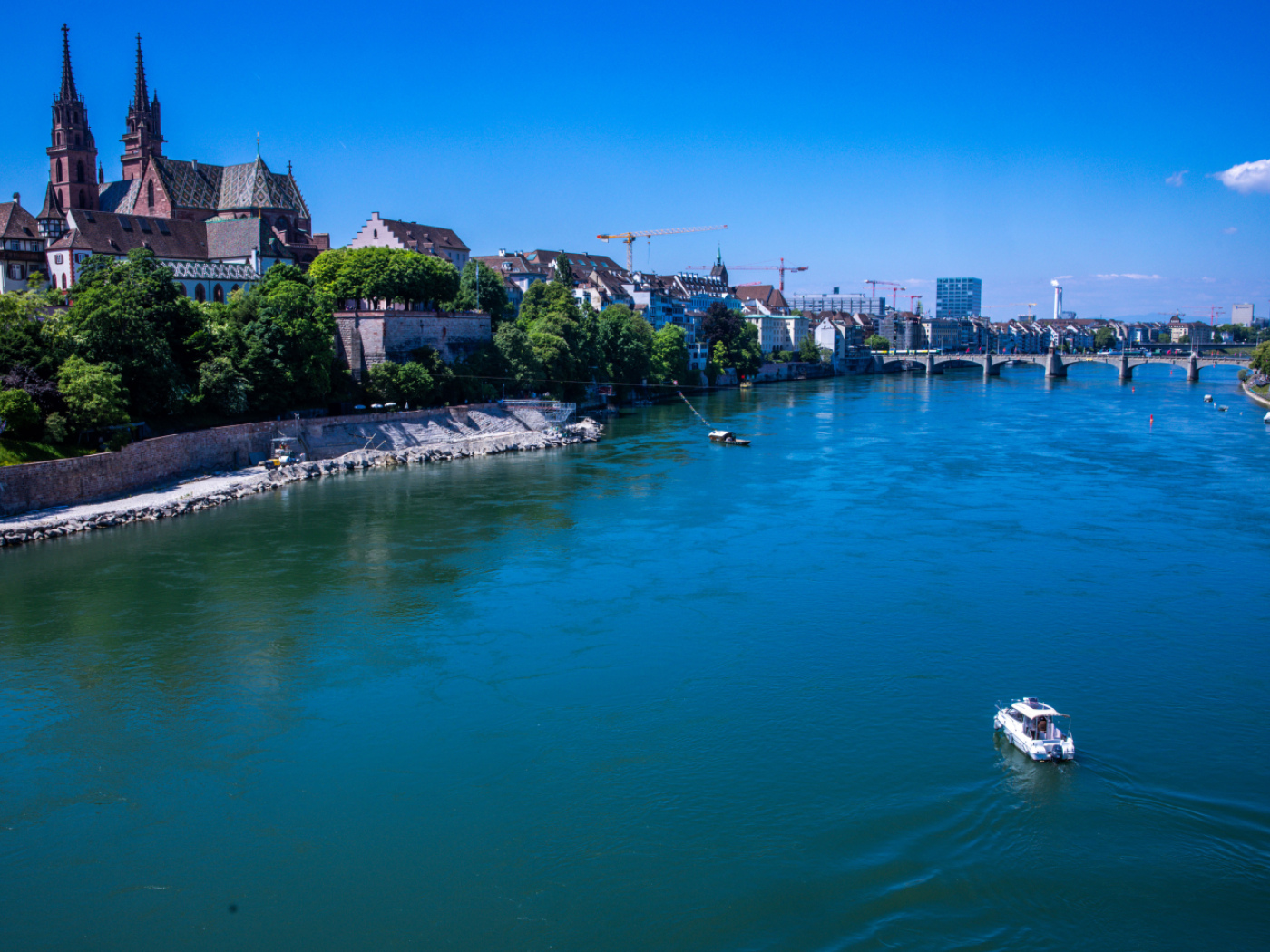
Rhine could warm by 4°C by 2100, scientists warn

The water temperature of the Rhine River could rise by up to 4.2° degrees Celsius by the end of the century due to climate change, scientists warn.
+Get the most important news from Switzerland in your inbox
This is the result of an analysis by Germany’s Federal Institute of Hydrology (BfG) and the Dutch research institute Deltares on behalf of the International Commission for the Protection of the Rhine (ICPR).
“The Rhine is warming significantly as a result of climate change,” their study states. There are already effects on the ecology and economy that will intensify in the future. The rise in water temperature is directly linked to the rise in air temperatures due to climate change, according to a press release.
The researchers simulated the development of water temperatures and carried out modelling calculations. They expect the water in the Rhine to warm by between 1.1-1.8°C by the middle of the century. “By 2100, the average annual water temperature could even warm by 2.9-4.2°C, compared to the period from 1990 to 2010, which was used as a reference for all calculations,” the authors wrote.

More
Half of Switzerland’s fish in danger, says study
On an annual average, the number of days on which the main part of the Rhine is below 10°C could fall significantly: from the current 170 to 104 days. At the same time, the number of days with temperatures above 21.5°C would increase from the current 32 to 106 days a year, according to the modelling.
On 50 of these days, the average temperature could even reach between 25-28°C. According to the study, the southern sections of the Rhine from Switzerland to Karlsruhe will be particularly affected.
What consequences?
“If critical temperature thresholds are exceeded over longer periods of time, ecological damage can occur,” said Tanja Bergfeld-Wiedemann, a biologist at the BfG. “At higher temperatures, the solubility of gases in the water also decreases, which means less oxygen is available to the animals.”
Restrictions on the use of water are also a possible consequence, according to the press release. “The rise in temperature will lead to less capacity being available for existing and new cooling water consumers.”

More
Fish species are disappearing as Swiss lakes warm up
Translated from German by DeepL/sb
We select the most relevant news for an international audience and use automatic translation tools to translate them into English. A journalist then reviews the translation for clarity and accuracy before publication.
Providing you with automatically translated news gives us the time to write more in-depth articles. The news stories we select have been written and carefully fact-checked by an external editorial team from news agencies such as Bloomberg or Keystone.
If you have any questions about how we work, write to us at english@swissinfo.ch

In compliance with the JTI standards
More: SWI swissinfo.ch certified by the Journalism Trust Initiative



























You can find an overview of ongoing debates with our journalists here . Please join us!
If you want to start a conversation about a topic raised in this article or want to report factual errors, email us at english@swissinfo.ch.